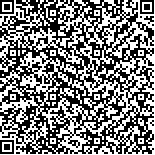| Quote
: |
陈蕾, 曾理, 智慧, 潘杰灵, 张玉乔, 唐丽亚, 李武, 李江山.推拿干预疼痛情绪的脑电作用机制及其研究进展[J].湖南中医药大学学报英文版,2024,44(10):1913-1920.[Click to copy
] |
|
| |
|
|
| This paper
:Browser 2444times Download 1397times |
| 推拿干预疼痛情绪的脑电作用机制及其研究进展 |
| 陈蕾,曾理,智慧,潘杰灵,张玉乔,唐丽亚,李武,李江山 |
| (湖南中医药大学针灸推拿与康复学院, 湖南 长沙 410208) |
| 摘要: |
| 推拿对于疼痛类疾病有着十分确切的疗效,其镇痛作用良好。通过回顾脑电图在痛情绪的相关研究以及痛情绪的中枢神经机制,对痛情绪患者的脑电波进行分析,发现疼痛引发脑电波活动的不对称,这是造成情绪障碍的主要原因。进一步研究脑电图技术在推拿的应用发现,推拿能增加δ波的活动,减少α波和β波的活动,产生愉悦效应。脑电图技术揭示了与疼痛相关的负面情绪在脑电活动上的独特变化,这些变化不仅能反映出慢性疼痛患者与情绪状态相关的生理特征,还可成为推拿治疗的潜在干预点。借助脑电图能为痛情绪的治疗提供科学依据,优化治疗方案,提升临床疗效,同时还能拓展推拿效应的客观指标,推动推拿学科的发展。 |
| 关键词: 推拿 痛情绪 脑电图 疼痛 焦虑 抑郁 |
| DOI:10.3969/j.issn.1674-070X.2024.10.028 |
| Received:January 19, 2024 |
| 基金项目:国家自然科学基金面上项目(82374613);湖南中医药大学研究生创新课题(CX20230788);湖南省科技创新计划项目(2022RC1221)。 |
|
| Mechanism of action of tuina intervention on electroencephalographic activity related to pain emotions and its research progress |
| CHEN Lei, ZENG Li, ZHI Hui, PAN Jieling, ZHANG Yuqiao, TANG Liya, LI Wu, LI Jiangshan |
| (School of Acupuncture-moxibustion, Tuina, and Rehabilitation, Hunan University of Chinese Medicine, Changsha, Hunan 410208, China) |
| Abstract: |
| Tuina exhibits definite therapeutic efficacy on pain diseases, demonstrating notable analgesic effects. By reviewing the research related to electroencephalogram (EEG) in pain emotions and the central nervous mechanism of pain emotions, an analysis was conducted on the brain waves of patients experiencing pain emotions. It was found that pain triggers asymmetry of the brain wave activity, which is a major cause of emotional disorders. Further research into the application of EEG technology in tuina therapy has revealed that tuina can increase δ-wave activity and decrease α-wave and β-wave activity, producing a pleasurable effect. EEG technology has uncovered unique changes in brain electrical activity associated with pain-related negative emotions. These changes not only reflect the physiological characteristics related to emotional states in chronic pain patients, but also serve as potential intervention points for tuina therapy. Utilizing EEG can provide a scientific basis for the treatment of pain emotions, optimize treatment plans, and enhance clinical efficacy. Simultaneously, it can expand the objective indicators of the effects of tuina and promote the development of tuina discipline. |
| Key words: tuina pain emotions electroencephalography pain anxiety depression |
|

二维码(扫一下试试看!) |
|
|
|
|


